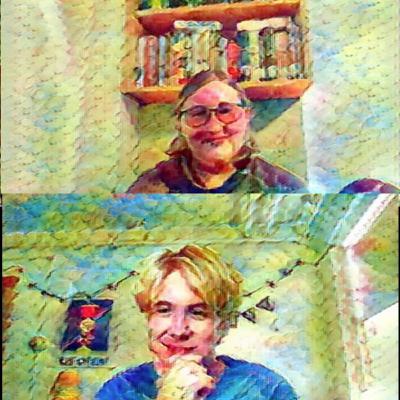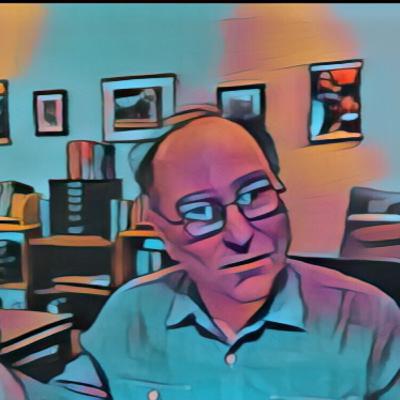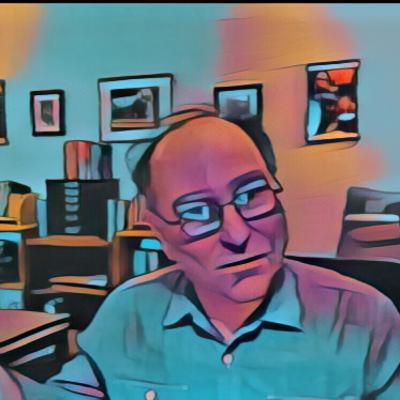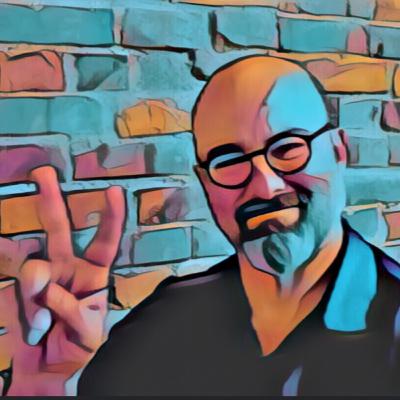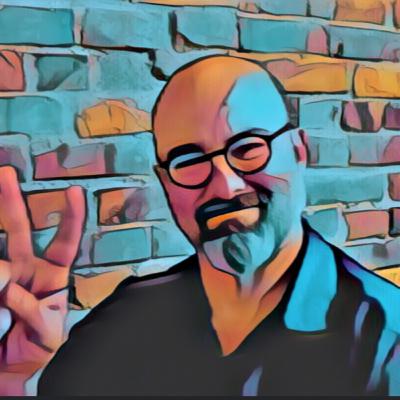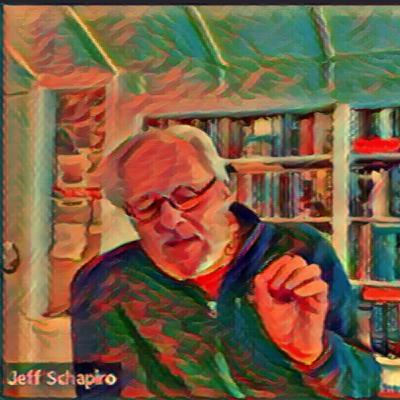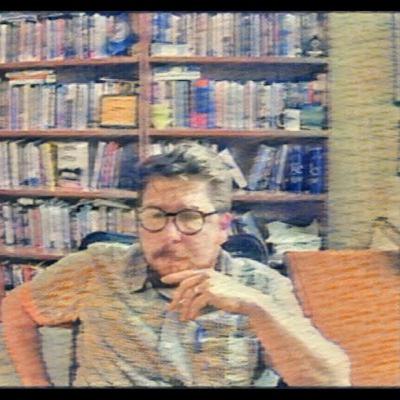Discover The True Representation Movement Podcast
The True Representation Movement Podcast

The True Representation Movement Podcast
Author: The True Rep Movement
Subscribed: 1Played: 0Subscribe
Share
© The True Rep Movement
Description
This is the official Podcast of The True Representation Movement. The True Representation Movement is an initiative designed to elect representatives to the U.S. House of Representatives who commit to voting on all bills strictly according to the will of the people.
For more, please go to: https://jointrm.com/
The TRM Podcast is part of The Democracy Group, a network of podcasts that examines what's broken in our democracy and how we can work together to fix it.
For more, please go to: https://jointrm.com/
The TRM Podcast is part of The Democracy Group, a network of podcasts that examines what's broken in our democracy and how we can work together to fix it.
50 Episodes
Reverse
In this episode, we are joined by Travis Misurell, founder of the he Future Is Now Coalition (FINC), for a wide-ranging and refreshingly concrete conversation about what it would actually take to fix a broken democratic system. Travis brings a rare combination of logistics thinking, technical fluency, and psychological insight to a problem most people treat as either abstract or hopeless. Rather than arguing left versus right, his work reframes politics as people-first versus power-first, and focuses on the structural failures that prevent real representation long before voters ever reach the ballot box.We dive into why candidate selection is the true choke point of democracy, how money, party gatekeepers, and establishment media quietly narrow our choices, and why most political reform efforts fail to reach critical mass. Travis lays out a bold but pragmatic vision for “digital politics” and “digital democracy”: A shared civic infrastructure that connects citizens, independent journalists, grassroots candidates, and reform movements into a single, people-owned platform. Along the way, we talk about coordination versus fragmentation, awareness versus power, and why upgrading democracy may be less about ideology than about finally modernizing how we choose and hold leaders accountable.This conversation isn’t about slogans or fantasies. It’s about mechanisms, sequencing, and the hard work of building something real—together.For more about Travis and his work, please visit:- https://futureis.org/- https://www.linkedin.com/company/futureisnowcoalition/- https://www.linkedin.com/in/tmisurell/
In this episode, we are joined by Travis Misurell, founder of the he Future Is Now Coalition (FINC), for a wide-ranging and refreshingly concrete conversation about what it would actually take to fix a broken democratic system. Travis brings a rare combination of logistics thinking, technical fluency, and psychological insight to a problem most people treat as either abstract or hopeless. Rather than arguing left versus right, his work reframes politics as people-first versus power-first, and focuses on the structural failures that prevent real representation long before voters ever reach the ballot box.We dive into why candidate selection is the true choke point of democracy, how money, party gatekeepers, and establishment media quietly narrow our choices, and why most political reform efforts fail to reach critical mass. Travis lays out a bold but pragmatic vision for “digital politics” and “digital democracy”: A shared civic infrastructure that connects citizens, independent journalists, grassroots candidates, and reform movements into a single, people-owned platform. Along the way, we talk about coordination versus fragmentation, awareness versus power, and why upgrading democracy may be less about ideology than about finally modernizing how we choose and hold leaders accountable.This conversation isn’t about slogans or fantasies. It’s about mechanisms, sequencing, and the hard work of building something real—together.For more about Travis and his work, please visit:- https://futureis.org/- https://www.linkedin.com/company/futureisnowcoalition/- https://www.linkedin.com/in/tmisurell/
In this episode of The TRM Podcast, we sit down with Rashida Brown, a longtime Advisory Neighborhood Commissioner and Democratic candidate for the Ward 1 seat on the DC City Council. With more than a decade of experience serving residents on the ground, Brown brings a rare combination of practical governance, deep community ties, and a systems-level understanding of how local power actually works.Our conversation moves beyond campaign slogans and into the real mechanics of democracy in Washington, DC: how decisions get made, who gets heard, and why working-class and immigrant communities so often bear the costs of policies shaped by a small, organized minority. We discuss housing, public safety, the limits of siloed government agencies, the politics of “not-in-my-backyard” opposition, and the controversial stadium deal that redirected public money away from urgent social needs.Throughout the episode, Brown lays out a vision of leadership rooted in people power rather than special interests, drawing on her background as a social worker, her experience navigating DC’s advisory commission system, and her belief that democracy only works when regular citizens are actively empowered to shape outcomes.This is a candid, substantive conversation about what local government can be—and what it must become—if it is to truly serve the many rather than the few.For more about Rashida Brown, please visit: https://rashidaforward1.com/
In this episode of The TRM Podcast, we sit down with Rashida Brown, a longtime Advisory Neighborhood Commissioner and Democratic candidate for the Ward 1 seat on the DC City Council. With more than a decade of experience serving residents on the ground, Brown brings a rare combination of practical governance, deep community ties, and a systems-level understanding of how local power actually works.Our conversation moves beyond campaign slogans and into the real mechanics of democracy in Washington, DC: how decisions get made, who gets heard, and why working-class and immigrant communities so often bear the costs of policies shaped by a small, organized minority. We discuss housing, public safety, the limits of siloed government agencies, the politics of “not-in-my-backyard” opposition, and the controversial stadium deal that redirected public money away from urgent social needs.Throughout the episode, Brown lays out a vision of leadership rooted in people power rather than special interests, drawing on her background as a social worker, her experience navigating DC’s advisory commission system, and her belief that democracy only works when regular citizens are actively empowered to shape outcomes.This is a candid, substantive conversation about what local government can be—and what it must become—if it is to truly serve the many rather than the few.For more about Rashida Brown, please visit: https://rashidaforward1.com/
In this episode of The TRM Podcast, we speak with Bowdoin College students Natalie Emerson and Larson Van Horn, creators of the Pine State Politics in Session podcast. What began as an academic project has become a powerful civic experiment in demystifying democracy. Emerson and Van Horn take us inside the process — petitions, ranked-choice voting, clean election funding — the often-invisible machinery that makes democracy work. Their mission is simple but profound: to replace cynicism with understanding by showing how the system actually functions, and how ordinary citizens can engage it with intelligence and purpose. From their experience gathering signatures on a Senate campaign to interviewing figures across the political spectrum, they remind us that democracy is not a spectator sport.A grounded, hopeful conversation with two voices of the next generation who are learning — and teaching — what democratic participation really means.
In this episode of The TRM Podcast, we speak with Bowdoin College students Natalie Emerson and Larson Van Horn, creators of the Pine State Politics in Session podcast. What began as an academic project has become a powerful civic experiment in demystifying democracy. Emerson and Van Horn take us inside the process — petitions, ranked-choice voting, clean election funding — the often-invisible machinery that makes democracy work. Their mission is simple but profound: to replace cynicism with understanding by showing how the system actually functions, and how ordinary citizens can engage it with intelligence and purpose. From their experience gathering signatures on a Senate campaign to interviewing figures across the political spectrum, they remind us that democracy is not a spectator sport.A grounded, hopeful conversation with two voices of the next generation who are learning — and teaching — what democratic participation really means.
In this episode, we are joined by Josh Ruebner — Policy Director at the Institute for Middle East Understanding, author, and scholar of U.S.–Palestine relations — for a deep dive conversation about genocide, accountability, and the state of U.S. politics. We reflect on how conditions for Palestinians have worsened over the past two decades, the role of social media in exposing atrocities in real time, and the dramatic shift in American public opinion toward ending military support for Israel. Yet, despite this overwhelming public sentiment, Congress continues to greenlight weapons and aid—laying bare the disconnect between the will of the people and the actions of their representatives. For TRM, this crisis is more than a foreign policy issue; it is a stark example of why our democracy must be restructured to reflect the collective wisdom and values of ordinary people. The conversation highlights both the urgency of addressing U.S. complicity in human rights abuses and the broader need for a political system that is truly representative.
In this episode, we are joined by Josh Ruebner — Policy Director at the Institute for Middle East Understanding, author, and scholar of U.S.–Palestine relations — for a deep dive conversation about genocide, accountability, and the state of U.S. politics. We reflect on how conditions for Palestinians have worsened over the past two decades, the role of social media in exposing atrocities in real time, and the dramatic shift in American public opinion toward ending military support for Israel. Yet, despite this overwhelming public sentiment, Congress continues to greenlight weapons and aid—laying bare the disconnect between the will of the people and the actions of their representatives. For TRM, this crisis is more than a foreign policy issue; it is a stark example of why our democracy must be restructured to reflect the collective wisdom and values of ordinary people. The conversation highlights both the urgency of addressing U.S. complicity in human rights abuses and the broader need for a political system that is truly representative.
In this episode, we sit down with philosopher Robert Talisse to explore the ideas behind his book Civic Solitude: Why Democracy Needs Distance. Talisse argues that while democracy thrives on public participation, it also requires something quieter — moments of reflection and distance from the noise. We talk about polarization, the hidden costs of constant engagement, and why institutions like libraries and museums might be just as essential to democracy as voting booths. This conversation is about rethinking what it really means to be a citizen in today’s fractured political landscape.
In this episode, we sit down with philosopher Robert Talisse to explore the ideas behind his book Civic Solitude: Why Democracy Needs Distance. Talisse argues that while democracy thrives on public participation, it also requires something quieter — moments of reflection and distance from the noise. We talk about polarization, the hidden costs of constant engagement, and why institutions like libraries and museums might be just as essential to democracy as voting booths. This conversation is about rethinking what it really means to be a citizen in today’s fractured political landscape.
In this episode of The TRM Podcast our guest is Bill Pluecker, a farmer, small business owner, and independent representative for Maine’s 44th District. Bill’s work in the legislature is grounded in his life on the farm, giving him a rare perspective on how laws actually affect communities. In this conversation, we talk about what it means to serve in a citizen legislature, how Maine connects local farmers to those who need food most, and the delicate balancing act between economic development, environmental goals, and preserving farmland.
In this episode of The TRM Podcast our guest is Bill Pluecker, a farmer, small business owner, and independent representative for Maine’s 44th District. Bill’s work in the legislature is grounded in his life on the farm, giving him a rare perspective on how laws actually affect communities. In this conversation, we talk about what it means to serve in a citizen legislature, how Maine connects local farmers to those who need food most, and the delicate balancing act between economic development, environmental goals, and preserving farmland.
This episode of the TRM Podcast features an in-depth conversation with journalist Hugo Balta, Executive Editor of The Fulcrum. We explore the principles of solutions journalism reporting that not only identifies problems but also examines real-world responses with evidence and accountability. Balta challenges the myth of media objectivity, arguing instead for fairness, accuracy, and transparency shaped by diverse lived experiences. Drawing on his decades in mainstream outlets like MSNBC, CBS, and ABC, he shares firsthand insights into how newsrooms have shifted from journalism to ratings-driven entertainment. Together we discuss the press’s responsibility to hold power to account, the dangers of echo chambers, and why media literacy is essential for a healthy democracy.
This episode of the TRM Podcast features an in-depth conversation with journalist Hugo Balta, Executive Editor of The Fulcrum. We explore the principles of solutions journalism reporting that not only identifies problems but also examines real-world responses with evidence and accountability. Balta challenges the myth of media objectivity, arguing instead for fairness, accuracy, and transparency shaped by diverse lived experiences. Drawing on his decades in mainstream outlets like MSNBC, CBS, and ABC, he shares firsthand insights into how newsrooms have shifted from journalism to ratings-driven entertainment. Together we discuss the press’s responsibility to hold power to account, the dangers of echo chambers, and why media literacy is essential for a healthy democracy.
In this episode of the TRM Podcast, Dr. Jennifer Chace joins us to discuss her groundbreaking work in transforming schools into democratic spaces where students are genuinely heard and empowered. Drawing from her dissertation, A Search for Moral Equality: Becoming a Listening School, Dr. Chace shares how she turned a grassroots action into a research-driven movement that trains students to gather peer perspectives, collaborate with educators, and co-create policy changes—from securing AP exam fee waivers to designing mental health curricula. The conversation explores the broader implications of this model, including its potential to revitalize civic life and decision-making at the community level. This is a must-listen for anyone interested in education, participatory democracy, and the future of civic engagement.#EducationReform #StudentVoice #DemocraticSchools #CivicEngagement #YouthEmpowerment #MoralEquality #ListeningSchool #TRMPodcast #JenniferChace #ParticipatoryDemocracy
In this episode of the TRM Podcast, we sit down with Professor Scott Aikin to unpack the philosophy of "deep disagreement"—the idea that some of our political and cultural divides persist not because we’re irrational, but because we reason from fundamentally incompatible worldviews. From the theoretical roots of this concept to its exploitation by reactionary movements like the "Dark Enlightenment," Aikin explores how these divides are not just psychological but structural—and how bad-faith actors are using memes, mockery, and manufactured spectacle to bypass reason entirely. A powerful conversation about reason, identity, and the battleground of modern discourse.#DeepDisagreement #DarkEnlightenment #PhilosophyPodcast #PoliticalDiscourse #CultureWars #TRMPodcast #RedPill #ReasonAndRhetoric #Polarization #MemePolitics
In this episode of the TRM Podcast, we sit down with Professor Scott Aikin to unpack the philosophy of "deep disagreement"—the idea that some of our political and cultural divides persist not because we’re irrational, but because we reason from fundamentally incompatible worldviews. From the theoretical roots of this concept to its exploitation by reactionary movements like the "Dark Enlightenment," Aikin explores how these divides are not just psychological but structural—and how bad-faith actors are using memes, mockery, and manufactured spectacle to bypass reason entirely. A powerful conversation about reason, identity, and the battleground of modern discourse.#DeepDisagreement #DarkEnlightenment #PhilosophyPodcast #PoliticalDiscourse #CultureWars #TRMPodcast #RedPill #ReasonAndRhetoric #Polarization #MemePolitics
In this episode of the TRM Podcast, we sit down with Scholar at The University of Virginia Center for Politics and veteran political reporter, Jeff Shapiro, to reflect on his nearly 45 years covering Virginia politics. From his long tenure at the Richmond Times-Dispatch to his continuing commentary on public radio and and engagement as a Scholar at the University of Virginia, Shapiro brings a wealth of insight to a wide-ranging conversation that spans the reinvention of Virginia’s economy, the legacy of Jerry Connolly, the internal fractures within the Democratic Party, and the evolving role—and dysfunction—of political parties in American democracy. At once historical and timely, this discussion maps the deeper shifts behind today’s political turbulence. #VirginiaPolitics #JeffShapiro #DemocraticParty #JerryConnolly #AOC #PoliticalJournalism #Redistricting #PartyPolitics #AmericanDemocracy #TRMPodcast
In this, part 2 of our conversation with Professor Nicholas Jacobs, Associate Professor of Government at Colby College and Director of the Public Policy Lab, we explore the deep disconnect between democratic ideals and political reality in the U.S. Drawing from his acclaimed book The Rural Voter and his forthcoming Subverting the Republic, Jacobs challenges popular narratives about Trumpism, executive power, and rural America. We discuss how state power is being strategically redeployed, why the liberal imagination fails to grasp rural discontent, and whether our current system is structurally incapable of true representation. This conversation is essential listening for anyone serious about reimagining democracy from the ground up.
In this, the first episode of the third season of The TRM Podcast, we sit down with Professor Nicholas Jacobs, Associate Professor of Government at Colby College and Director of the Public Policy Lab, to explore the deep disconnect between democratic ideals and political reality in the U.S. Drawing from his acclaimed book The Rural Voter and his forthcoming Subverting the Republic, Jacobs challenges popular narratives about Trumpism, executive power, and rural America. We discuss how state power is being strategically redeployed, why the liberal imagination fails to grasp rural discontent, and whether our current system is structurally incapable of true representation. This conversation is essential listening for anyone serious about reimagining democracy from the ground up.






